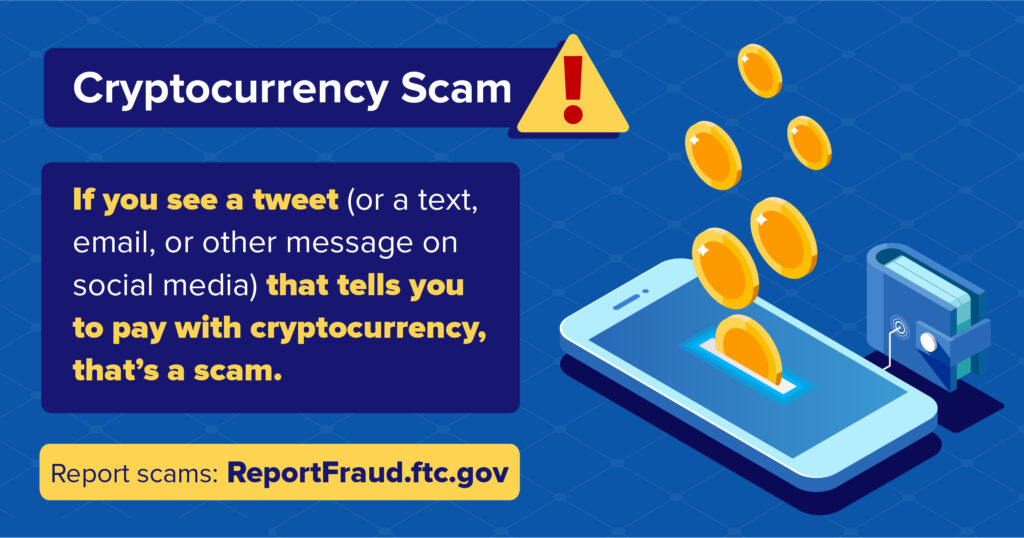As the popularity of cryptocurrencies continues to rise, so too do the number of scams targeting unsuspecting investors and enthusiasts. Being aware of these common scams is essential for safeguarding your investments and avoiding financial loss. Here are some of the most prevalent cryptocurrency scams to watch out for:
- Phishing Scams: Phishing scams involve fraudulent emails, websites, or messages designed to trick individuals into revealing their private keys, passwords, or other sensitive information. These scams often impersonate legitimate cryptocurrency exchanges or wallet providers, luring victims into providing their credentials and compromising their accounts.
- Ponzi Schemes: Ponzi schemes promise high returns on investment by recruiting new investors to finance payouts to earlier investors. These schemes rely on a continuous influx of new capital to sustain payouts, with early investors often profiting at the expense of later participants. Eventually, the scheme collapses when it becomes unsustainable, leaving many investors with significant losses.
- Fake ICOs (Initial Coin Offerings): Fake ICOs capitalize on the hype surrounding new cryptocurrency projects by soliciting investments in non-existent or fraudulent tokens. These scams typically involve elaborate marketing campaigns and false promises of guaranteed returns, enticing investors to contribute funds to fraudulent projects. Once the ICO concludes, the scammers disappear with the investors’ money, leaving them with worthless tokens.
- Pump and Dump Schemes: Pump and dump schemes involve artificially inflating the price of a low-value cryptocurrency through coordinated buying activity, creating a false impression of market demand. Once the price reaches a certain level, the perpetrators sell off their holdings at a profit, causing the price to plummet and leaving unsuspecting investors with losses.
- Fake Exchanges and Wallets: Fake cryptocurrency exchanges and wallets mimic legitimate platforms to deceive users into depositing their funds. These scams often involve creating convincing replicas of popular exchanges or wallet providers, tricking users into transferring their assets to fraudulent accounts. Once the funds are deposited, the scammers disappear with the stolen cryptocurrencies, leaving victims unable to recover their funds.
- Malware and Ransomware Attacks: Malware and ransomware attacks target cryptocurrency users by infecting their devices with malicious software designed to steal sensitive information or encrypt files until a ransom is paid. These attacks can compromise the security of cryptocurrency wallets and exchanges, resulting in the loss of funds or unauthorized access to sensitive data.
Protecting Yourself from Cryptocurrency Scams: To protect yourself from cryptocurrency scams, it is essential to remain vigilant and follow best practices for security and risk management. Some tips for safeguarding your investments include:
- Conduct thorough research before investing in any cryptocurrency project, including reviewing the team members, project goals, and community feedback.
- Use reputable cryptocurrency exchanges and wallet providers with strong security measures in place, such as two-factor authentication and cold storage for funds.
- Be cautious of unsolicited investment opportunities, especially those promising guaranteed returns or high-yield investments with little to no risk.
- Never share your private keys, passwords, or sensitive information with anyone, and be wary of phishing attempts and fraudulent websites.
- Keep your devices and software up to date with the latest security patches and antivirus software to prevent malware and ransomware attacks.
By staying informed and exercising caution, you can minimize the risk of falling victim to cryptocurrency scams and protect your investments in the ever-evolving world of digital assets.




